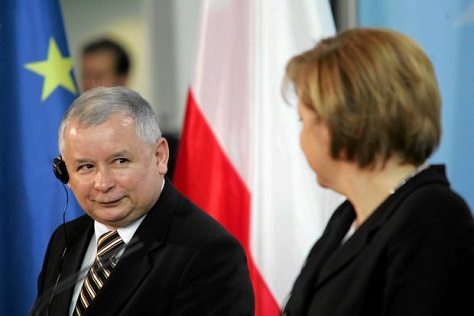
It’s not an exaggeration to say that Jarosław Kaczyński, the leader of Poland’s governing party, Prawo i Sprawiedliwość (PiS, Law and Justice), is now as important figure in European politics as French president François Hollande. ![]()
No one should be surprised that Kaczyński is now the de facto leader of Poland, and no one should have doubted that he would direct a PiS-led government to pursue its full-throated agenda of populist economic sops to Poland’s poorest easterners and socially conservative values, mixed with equal amounts of nativism, euroscepticism and paranoia.
But Poland’s fresh government is facing criticism at home and abroad that it is now dismantling many of the features of the country’s post-Cold War democracy. Notably, critics argue that the new PiS government is co-opting both Poland’s constitutional tribunal and its state-run media.
Andrzej Duda, Poland’s new president has refused to seat five judges appointed by the outgoing government to Poland’s constitutional tribunal. Though two of those judicial appointments were subsequently ruled invalid, the new PiS government pushed forward with five new appointments anyway, leaving three judges validly appointed and unconfirmed. Moreover, the new PiS government passed a law mandating a two-thirds majority (not a simple majority) for constitutional rulings. The new government has also asserted greater political power over the state-controlled media.
Barely three months into Poland’s new government, the European Commission is opening a formal inquiry against the PiS-led administration, headed by EC first vice president Frans Timmermans, to determine whether the new government’s actions amount to a ‘systemic risk’ to Poland’s rule of law, a standard that — so far — hasn’t been breached in Hungary or Romania.
* * * * *
RELATED: Polish conservatives prepare to return to power after 8 years
RELATED: Poland election results: PiS sweeps to power
* * * * *
Those concerns are legitimate, especially insofar as the new government is undermining judicial independence and press freedom, and some Europeans hopes that US president Barack Obama will even exert pressure, through the NATO alliance, on Poland’s new government. But the overwrought response from EU elites will only play into the hands of the PiS’s most eurosceptic leaders and, what’s more, Polish democracy is far too developed in the year 2016 to crumble as easily as many of Kaczyński’s critics fear.
Throughout the European Union, the Greek economic crisis and lingering problems with the eurozone have undermined the monetary pillar of EU integration, while the deluge of migrants from Syria, Iraq, Eritrea and elsewhere, in greater numbers than at any time since World War II, have eroded the Schengen zone and the principle of internal European borders. EU leaders have far greater problems than allowing Kaczyński and the PiS into goading them into confrontation, especially as British voters focus on a 2017 referendum that could result in the United Kingdom leaving the European Union.
Over the summer, Kaczyński anointed a seemingly more moderate figure, Beata Szydło, as the PiS candidate for prime minister, and she duly took office in November 2015, just as Duda, the PiS’s candidate for president took office in August 2015 following an upset victory over the more centrist incumbent, Bronisław Komorowski. Nevertheless, Kaczyński has a history of being incapable of standing quietly in the background. When the PiS first won power in 2005, the plan was for an equally fresh face, Kazimierz Marcinkiewicz, to become prime minister (while Kaczyński’s brother Lech occupied the presidential palace).
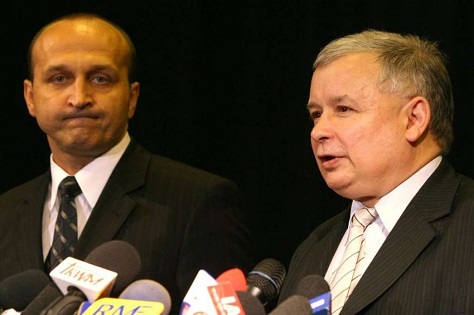
Marcinkiewicz lasted less than nine months before Kaczyński took the reins instead, despite (or perhaps because of) Marcinkiewicz’s growing popularity with the Polish electorate and amid hints of tension between the two figures. Marcinkiewicz eventually left politics for business, and Kaczyński continued as one of Poland’s most controversial leaders since the fall of the Berlin Wall.
Just a few months ago, Poland was the shining new pupil of the European Union. Though it joined the European Union only in 2004 (along with nine other eastern and central European countries), it has achieved some of the greatest gains over the last decade, notching the continent’s highest GDP growth since the eurozone crisis. Officially obligated to adopt the euro as its currency, Poland still uses the złoty, which has allowed it a bit more monetary freedom. Donald Tusk, after seven years as Poland’s center-right prime minister, was appointed in December 2014 as president of the European Council, the first person from central and eastern Europe to hold one of the European Union’s top offices.
Though Polish voters seemed more motivated to boot Tusk’s party, Platforma Obywatelska (PO, Civic Platform), than to embrace PiS’s mix of social conservatism and economic populism, it’s clear that Kaczyński is now pushing full speed ahead with a political agenda that has many Poles and Europeans worried.
Here are five reasons why that worry may be misplaced.
Politics is cyclical — ask Victor Ponta
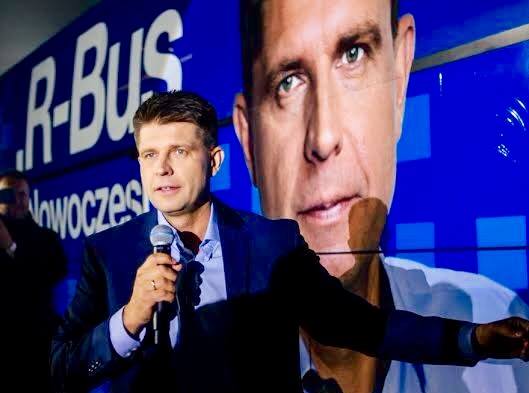
First, politics is politics, and PiS — like every government — will face voters between now and 2019. If Kaczyński and the other PiS officials overreach, they can be thrown out of office just like they were in 2007. It’s true that PiS is riding high today — a recent TNS Polska poll gives them 42% support among Polish voters, with just 16% supporting Civic Platform and a stunning 18% supporting Nowoczesna (Modern), the alternative centrist liberal party founded last May by Rysard Petru that now holds 29 seats in the Sejm.
Just three years ago, European officials worried that Romanian prime minister Victor Ponta would rewrite the constitution in a fundamentally illiberal and undemocratic way, following the lead of neighboring Hungary under Viktor Orbán. Yet Ponta resigned last November in the aftermath of a nightclub fire, dogged by corruption allegations. Even Orbán, though he won a resounding reelection in April 2014, lost a crucial by-election in February 2015 and, along with it, the two-thirds supermajority that his conservative Fidesz had previously enjoyed.
For example, it’s absurd that the current government might actually investigate Tusk, the former prime minister and European Council president, over conspiracy theories that he was somehow in cahoots with Russian president Vladimir Putin or otherwise responsible for the air crash over Russian’s Smolensk forest in 2010 that took the lives of many prominent Polish officials, including Kaczyński’s twin brother, then-president Lech Kaczyński (ironically and tragically, en route to an event to commemorate the Katyn massacre of many WWII-era Polish officials and intellectuals).
If the current government investigates Tusk, or even if it blocks Tusk’s reappointment due before May 2017, voters may consider that the PiS has gone too far, even if Petru or others are the beneficiaries of Kaczyński’s overreach.
Tusk and the center-right made a lot of miscalculations

There’s a reason that Polish voters wanted to turf PO out of power. Aside from the ennui that comes after eight years of one party in government, released secret recordings of several top figures tarred Tusk’s government as smug and out of touch with ordinary voters, all too many of whom felt like they were not seeing the gains of Poland’s much-heralded economic progress.
Moreover, though Tusk’s move to the European stage was probably the right move for a smart politician who avoided what could have been a humiliating electoral defeat, it also signaled to the Polish electorate that Tusk was ready to give up on national politics. Rather than allowing a free contest among Civic Platform for the leadership, Tusk essentially turned over the premiership to the little-known Ewa Kopacz, who struggled to follow in Tusk’s footsteps.
If Tusk had been more willing to forego more control over his own party, a more charismatic leader might have emerged, including the ambitious Grzegorz Schetyna, who Tusk sidelined in 2011. Schetyna, who served as Kopacz’s foreign minister, is the party’s new leader after his unopposed election earlier this month. Instead, Petru and his new ‘Modern’ movement might well push Civic Platform into extinction.
Though Szydło faced hours of grilling by the European Parliament earlier this month, Tusk appeared at a joint press conference with her last week, seeking common ground and casting doubt on any EU rule-of-law inquiry for Poland. With the new Polish foreign minister Witold Waszczykowski, like Szydło, taking a more conciliatory approach, Tusk may yet save his position at the European Council, all while losing his domestic political platform at home.
There’s no ‘left’ left in Polish politics
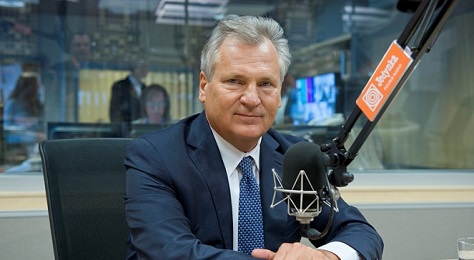
For a country where labor unions and leftist reformers helped end Soviet domination, the coalition of the democratic left and Poland’s Catholic church is now just a memory. Lech Wałęsa may still be alive, but the Polish left, for now, is dead, withered after the ‘Rywingate’ corruption scandal in 2004 that helped destroy Poland’s last center-left government a year later and more than a decade of political miscalculations. The result is that there is essentially no left in Polish politics today — it’s a fight between center-right liberals like Tusk and Petru and socially conservative populists like Kaczyński.
With no real leftist opposition, it’s not hard to believe that PiS would emerge as the alternative to Tusk when voters tired of two terms of Civic Platform, especially in light of the statist economic policies that Kaczyński’s party has espoused. In November, the Zjednoczona Lewica (United Left), a coalition of the remnants of the former Polish left, won just 7.55% of the vote, losing all of its seats in the Sejm; a one-time Christian democratic ally, the Polskie Stronnictwo Ludowe (PSL, Polish People’s Party), won just 5.13% and lost all but 16 seats in the 460-member Sejm.
If EU leaders did nothing about Hungary,
they can do little about Poland
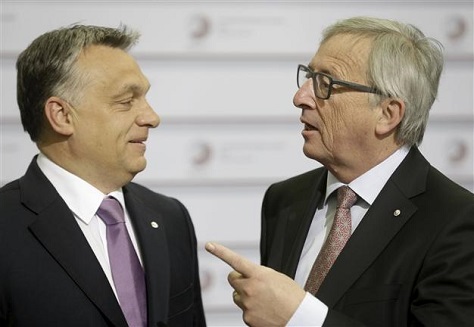
If Timmermans and other Commission leaders do move aggressively against Poland, it could easily backfire, just as overhasty sanctions against Austria in 2000 only legitimized Jörg Haider and the far-right Freiheitliche Partei Österreichs (FPÖ, Freedom Party) that had become a junior partner in the Austrian government.
Meanwhile, Orbán, Hungary’s prime minister since 2010, has enshrined opposition to same-sex marriage in the Hungarian constitution, changed the electoral system in ways designed to boost his own party and spurned European efforts to resettle refugees throughout the past year, all along the way openly embracing the concept of ‘illiberal democracy.’
Though the Commission has, from time to time, threatened to take serious action against Orbán, it has never seriously considered the sanction that it once so loosely imposed on Austria. But Orbán’s attacks on the foundations of Hungarian liberal democracy (or even Ponta’s similar attempts in Romania) far outweigh anything that the new Polish government has done so far. Despite tough talk from the Commission, most recently in relation to Orbán’s musings about the reintroduction of the death penalty, the Commission could hardly punish Poland harshly while looking the other way with Hungary. Nothing would give Kaczyński more ammunition to make the case that Brussels is determined to undermine Polish sovereignty or intervene in Polish democratic process.
The German-Polish axis is still critical to the EU’s long-term success
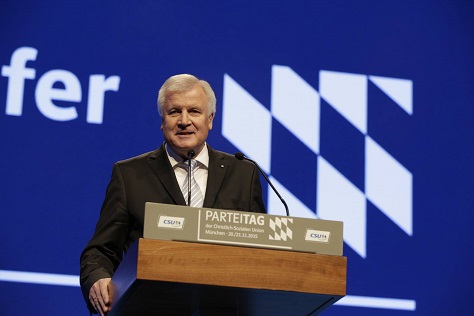
Academics have long noted the Franco-German axis as the key to European policymaking. That’s still true, but today, it’s possible to talk about the new German-Polish axis or, perhaps, a tripartite Franco-German-Polish axis. With over 38 million people, Poland is the most populous country in central and eastern Europe, and it’s the sixth most populous in the European Union.
Like it or not, relations between Berlin and Warsaw will become even more important in the decades ahead.
Though the gap between Hollande, the French president, and German chancellor Angela Merkel seems wide today, it’s relatively minor compared to that between Poland and Germany — for now.
Despite growing doubts about her bold action welcoming Syrian and other migrants to Germany, everyone still expects Merkel to seek (and win) a fourth term in 2017. But nothing’s certain in politics, and the rise of discontent among Merkel’s own party, the Christlich Demokratische Union (CDU, Christian Democratic Union) and in its Bavarian sister party, the Christlich-Soziale Union in Bayern (CSU, Christian Social Union), has dented her political invincibility.
The more eurosceptic Alternative für Deutschland (AfD, Alternative for Germany), whose voters generally oppose further migration as well, have doubled their support from just under the 5% electoral threshold in September 2013 to around 10% in post polls today. An election today would give the AfD a legislative basis to pressure Merkel and the CDU/CSU from the right.
Above all, public opinion can turn dramatically, especially after events like the sexual assaults that took place in Cologne over the New Year’s holiday. Negotiations with British prime minister David Cameron over his country’s role in the European Union could lead, at long last, to the de jure recognition of the longstanding de facto reality of a multi-speed Europe, with more dense integration among a smaller core of member-states. So it’s not hard to imagine a Germany, even by the time of the next Polish election, moving to a much more realistic view of European integration and further to the right on migration and other issues that brings German domestic politics more closely aligned to the Kaczyński view.